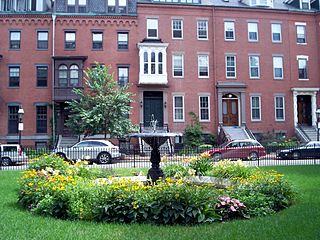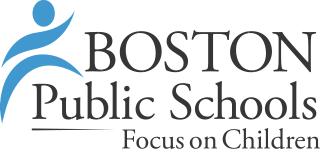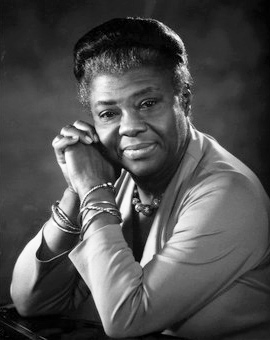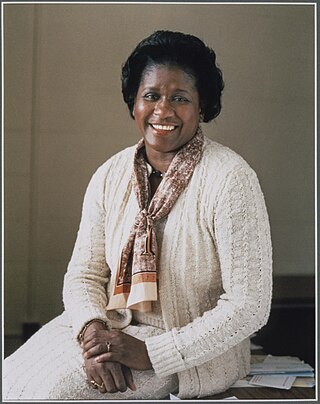Related Research Articles

Roxbury is a neighborhood within the City of Boston, Massachusetts, United States.

Anna Louise Day Hicks was an American politician and lawyer from Boston, Massachusetts, best known for her staunch opposition to desegregation in Boston public schools, and especially to court-ordered busing, in the 1960s and 1970s. A longtime member of Boston's school board and city council, she served one term in the United States House of Representatives, succeeding Speaker of the House John W. McCormack.

The South End is a neighborhood in Boston, Massachusetts, United States which is bordered by Back Bay, Chinatown, and Roxbury. It is distinguished from other neighborhoods by its Victorian-style houses and the parks in and around the area. The South End is the largest intact Victorian row-house district in the country, covering over 300 acres (120 ha). It has eleven residential parks. In 1973, the South End was listed on the National Register of Historic Places. Much of the neighborhood was originally marshlands in Boston's South Bay. After it was filled in, construction began in 1849.

Dorchester is a Bostonian neighborhood comprising more than 6 square miles (16 km2) in the City of Boston, Massachusetts, United States. Originally, Dorchester was a separate town, founded by Puritans who emigrated in 1630 from Dorchester, Dorset, England, to the Massachusetts Bay Colony. This dissolved municipality, Boston's largest neighborhood by far, is often divided by city planners in order to create two planning areas roughly equivalent in size and population to other Boston neighborhoods.
The Metropolitan Council for Educational Opportunity, Inc. is the largest and second-longest continuously running voluntary school desegregation program in the country and a national model for the few other voluntary desegregation busing programs currently in existence. The program enrolls Boston resident students in Kindergarten through 12th grade into available seats in suburban public schools. Conceived by Boston activists Ruth Batson and Betty Johnson, and Brookline School Committee Chair Dr. Leon Trilling, METCO launched in 1966 as a coalition of seven school districts placing 220 students. The Massachusetts Racial Imbalance Act (RIA) of 1966, and amended in 1974, is the legal basis for voluntary interdistrict transfers for the purpose of desegregation, and funding is almost entirely provided by the Commonwealth of Massachusetts. Over the years, the academic and social outcomes of the program have been praised, while the increasing gap between cost and funding and the negative experiences of students of color have been the subject of criticism.

John Frederick Collins was an American lawyer who served as the mayor of Boston from 1960 to 1968. Collins was a lawyer who served in the Massachusetts Legislature from 1947 to 1955. He and his children caught polio during a 1955 outbreak. He was reliant on a wheelchair and crutches the rest of his life. After partially recovering, he ran for mayor in 1959 as an underdog. He successfully portrayed himself as outside corrupt "machine politics" and was elected.

Kevin Hagan White was an American politician best known for serving as the mayor of Boston for four terms from 1968 to 1984. He was first elected to the office at the age of 38. He presided as mayor during racially turbulent years in the late 1960s and 1970s, and the start of desegregation of schools via court-ordered busing of school children in Boston. White won the mayoral office in the 1967 general election in a hard-fought campaign opposing the anti-busing and anti-desegregation Boston School Committee member Louise Day Hicks. Earlier he had been elected Massachusetts Secretary of the Commonwealth in 1960 at the age of 31, and he resigned from that office after his election as Mayor.

Melnea Agnes Cass was an American community and civil rights activist. She was deeply involved in many community projects and volunteer groups in the South End and Roxbury neighborhoods of Boston and helped found the Boston local of the Brotherhood of Sleeping Car Porters. She was active in the fight to desegregate Boston public schools, as a board member and as president of the Boston chapter of the National Association for the Advancement of Colored People (NAACP). As a young woman, Cass also assisted women with voter registration after the passage of the Nineteenth Amendment. She was affectionately known as the "First Lady of Roxbury."

Boston Public Schools (BPS) is a school district serving the city of Boston, Massachusetts, United States. It is the largest public school district in the state of Massachusetts.
Ruth Marion Batson was an American civil rights activist and outspoken advocate of equal education. She spoke out about the desegregation of Boston Public Schools. She served as Chairman of the Public Education Sub-Committee of the National Association for the Advancement of Colored People (NAACP) in 1953. Later, she served as the executive director of the Metropolitan Council for Educational Opportunity (METCO).

Elma Ina Lewis was an American arts educator and the founder of the National Center of Afro-American Artists and The Elma Lewis School of Fine Arts. She was one of the first recipients of a MacArthur Fellows Grant, in 1981, and received a Presidential Medal for the Arts by President Ronald Reagan in 1983. She is also an honorary member of Alpha Kappa Alpha sorority.

Muriel Sutherland Snowden was the founder and co-director of Freedom House, a community improvement center in Roxbury, Massachusetts. She is, together with her husband Otto P. Snowden, a major figure in Boston history and activism.
The desegregation of Boston public schools (1974–1988) was a period in which the Boston Public Schools were under court control to desegregate through a system of busing students. The call for desegregation and the first years of its implementation led to a series of racial protests and riots that brought national attention, particularly from 1974 to 1976. In response to the Massachusetts legislature's enactment of the 1965 Racial Imbalance Act, which ordered the state's public schools to desegregate, W. Arthur Garrity Jr. of the United States District Court for the District of Massachusetts laid out a plan for compulsory busing of students between predominantly white and black areas of the city. The hard control of the desegregation plan lasted for over a decade. It influenced Boston politics and contributed to demographic shifts of Boston's school-age population, leading to a decline of public-school enrollment and white flight to the suburbs. Full control of the desegregation plan was transferred to the Boston School Committee in 1988; in 2013 the busing system was replaced by one with dramatically reduced busing.
Otto Phillip Snowden (1914–1995) was an influential 20th-century leader in Boston's African American community. Snowden and his wife, Muriel S. Snowden, were co-directors and founders of Freedom House in Roxbury from 1949 until their retirement in 1984.
La Alianza Hispana is a social service agency founded in 1969 by residents of Roxbury/ North Dorchester to support Boston's Hispanic population. La Alianza advocates for equal access to services and public resources for the Hispanic Community by combating the effects of discrimination, poverty and challenges of migration.
Paul Parks was an American civil engineer. Parks became the first African American Secretary of Education for Massachusetts, and was appointed by Governor Michael Dukakis to serve from 1975 until 1979. Mayor Raymond Flynn appointed Parks to the Boston School Committee, where he was also the first African American.
Jean McGuire is an American educator and civil rights leader. She was the first African American woman to be elected to a seat on the Boston School Committee in 1981, during the Boston busing desegregation era. She helped found the Metropolitan Council for Educational Opportunity (METCO) in 1966 and served as its executive director from 1973 to 2016.
Until 1950, African Americans were a small but historically important minority in Boston, where the population was majority white. Since then, Boston's demographics have changed due to factors such as immigration, white flight, and gentrification. According to census information for 2010–2014, an estimated 180,657 people in Boston are Black/African American, either alone or in combination with another race. Despite being in the minority, and despite having faced housing, educational, and other discrimination, African Americans in Boston have made significant contributions in the arts, politics, and business since colonial times.

Ellen Swepson Jackson was an American educator and activist. She is best known for founding Operation Exodus, a program that bused students from overcrowded, predominantly black Boston schools to less crowded, predominantly white schools in the 1960s. The program paved the way for the desegregation of Boston's public schools.

Royal Lee Bolling was a Massachusetts politician and head of a prominent African-American political family. While serving in the Massachusetts House of Representatives in 1965, he sponsored the state's Racial Imbalance Act, which led to the desegregation of Boston's public schools.
References
- 1 2 Freedom House Official Web Site
- 1 2 About Freedom House "Freedom House Photographs: Roxbury People, Places and Events 1950-1975," Northeastern University Libraries, 2008.
- ↑ "Muriel Sutherland Snowden" in Notable American Women, Susan Ware, Stacy Lorraine Braukman, Radcliffe Institute for Advanced Study, Harvard University Press, 2004 ISBN 978-0-674-01488-6
- 1 2 Finding aid for the records of Freedom House Northeastern University Libraries, Archives and Special Collections, Boston, MA.
- 1 2 Freedom House Photographs Online exhibit. Northeastern University Libraries, Archives and Special Collections. Boston, MA..
- ↑ Miller, Yawu (2000, October 26). "Freedom House joins Black-Jewish Roundtable effort." Bay State Banner, p. 2. ( Retrieved December 17, 2008, from Ethnic NewsWatch (ENW) database (restricted to subscribers). (Document ID: 492164411).
- ↑ Edgar J. Driscoll Jr. (1988-10-01). "Muriel Snowden, 72; Cofounder of Freedom House in Roxbury". Boston Globe. Archived from the original on 2012-10-22.
- ↑ "Archives and Special Collections Finding Aids: Collection of Freedom House, Inc., records". Northeastern University. Archived from the original on 2009-02-21. Retrieved 2008-12-18.
- ↑ See Smock, William H. "Operation Exodus: Rebuff to Politicians" (Harvard Crimson, October 18, 1965.) for more information about Operation Exodus.
- ↑ Freedom House Institute on Schools and Education Archived 2008-11-23 at the Wayback Machine , May 15, 1974(brochure)
- ↑ Edgar J. Driscoll Jr., Globe Staff (1988, October 1). "Muriel Snowden, 72; Cofounder of Freedom House in Roxbury" (Obituary, third edition) Boston Globe, p. 75. Retrieved December 17, 2008, from Boston Globe database via Proquest Massachusetts Newspapers (restricted to subscribers).